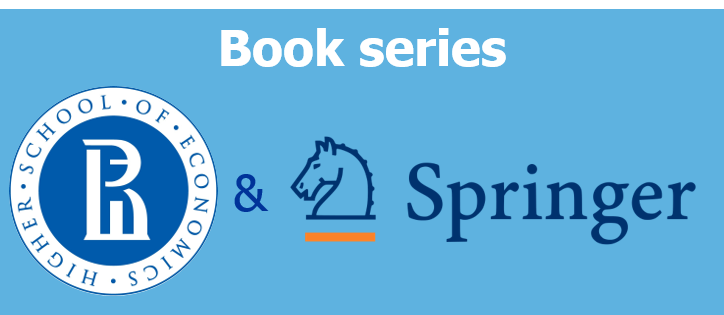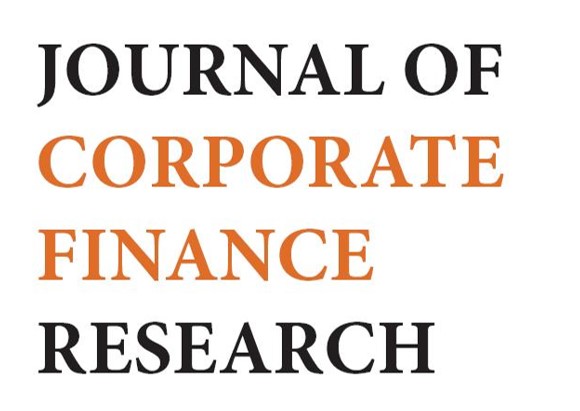Our Activities
Corporate Finance Center (CFC) was established in June 2006 at the National Research University Higher School of Economics (HSE), Moscow, Russia. CFC is committed to promote high quality research on the application of financial theory and techniques to real world corporate financial policies, corporate performance and corporate governance studies. CFC aims to develop new knowledge in knowlege intensive firms and to provide a forum for discussing empirical corporate finance results.
The Laboratory’s foci are the following research areas:
- Behavioral corporate finance in emerging capital markets
- Behavioral and personal characteristics of the CEO
- Financial sustainability of companies;
- Mergers and acquisitions performance
- Financial architecture of companies.
Behavioral Corporate Finance in Emerging Capital Markets
The goal of research in 2022 was implementation of the models to study the impact of personal characteristics of top management and boards of directors on the policy of technological and managerial innovations of companies, including the implementation of the principles of sustainable development and reporting on sustainable development, the horizon of decisions and identifying the corrective role of boards of directors.
A study conducted on a sample of 76 Russian companies from the broad MICEX index for 2013-2019 shows that the effect of short-termism in innovation is strongly pronounced in Russia: a reduction in the personal decision-making horizon of CEOs leads to a decrease in investment in R&D. The positive relationship between the length of the decision-making horizon of CEOs and companies' investments in R&D remains if the largest players in the corporate sector and companies from industries with a high percentage of investments in R&D are excluded from the sample.
Behavioral and personal characteristics of the CEO
In 2021, in the long-term project of the Laboratory, research was carried out regarding the characteristics of top management. Attention was paid to the role of the general director (CEO) and financial director (CFO) and the characteristics of board members in terms of their behavioral strategies and their personal characteristics. The study revealed that personal characteristics form the intellectual capital of these key persons for the company, and therefore allow us to analyze the impact of this original resource on the decisions, strategies and policies of companies, and their results.
As a result of the study for 2021, the Laboratory created a unique database of personal characteristics of the CEO of Russian public companies, including both the characteristics of human capital as a component of the intellectual capital of the CEO, and the behavioral anomalies of the CEO. A test analysis was used of both English-language materials - CEO's appeals to shareholders, and Russian-language ones. On this basis, a general article “Portrait of CEO in Russian business” is being prepared.
Financial Sustainability of Companies
In 2020 we continued the stream of research of innovative companies and their bankruptcies, although we shifted pur attention to the specific non-financial factors. We conducted our research via textual analyses. This allowed to determine specific words and phrases that are typical for financially sound and, on contrary, unstable firms.
Mergers, acquisitions and firm performance
The project aims at the empirical analysis of performance of high-tech mergers in developed capital markets. In the long-run we aim to investigate top-management individual characteristics and behavioural traits (especisally, those of CEOs and CFOs). Individual features form an intellectual capital of a company; consequently, they influence decision-making processes, strategies and perfomance of a company.
Financial architecture
This branch of research follows the trajectory of 2020. We analyze the influence of corporate financial architecture on performance of companies operating in the largest emerging capital markets (group of BRICS countries). We focused on such factors as the ownership structure, capital structure and corporate governance structure of innovative companies and conduct empirical analysis of their impact on financial performance. We also investigated the features and the role of intellectual capital of the board of directors in the implementation of successful strategic deals and consider the influence of intellectual capital of the board of directors on financial performance of innovative companies.
We concluded the low propensity to invest of CEO-founders of a company. We also found out that national culture may have non-significant influence on financing decisions about R&D; although, personal culture (of CEO or CEO-founder) is significant. On the basis of Russian banks we found out the role of human capital and CEO control in corporate governance; specific motives and behavioural biases of CEOs in innovative firms; specific agency conflicts in innovative companies.
Students involved in projects
Students of the Faculty of Economic Sciences often take part in the project alongside the scientific staff of the Laboratory. They also take part in the research seminar.
In particular, with the guidance of Svetlana Grigorieva (Associate Professor) and researcher Irina Skvortsova (Research Intern), students conducted the analysis of specificities and motives of high-tech mergers in developed capital markets and the analysis of ways of measurement of performance of high-tech mergers and acquisitions in developed capital markets. They dealt with the determinants of M&A performance for innovative firms in developed and emerging capital markets. Together with associate professor Elena Makeeva (Associate Professor), students determined the influence of different taxation policies on the leverage of innovative companies with the help of regression analysis. With the guidance of associate professor Anastasia Stepanova (Associate Professor), students investigated the features of the financial architecture of innovative companies.
Have you spotted a typo?
Highlight it, click Ctrl+Enter and send us a message. Thank you for your help!
To be used only for spelling or punctuation mistakes.


